Generic Medicines
Taj Pharma is the largest generic pharmaceutical company in India. We hold top positions in different established markets worldwide generics markets..

The pharmaceutical industry is one of the leading industries in China, covering synthetic chemicals and drugs, prepared Chinese medicines, medical devices, apparatus and instruments, hygiene materials, packing materials, and pharmaceutical machinery.
The profile of the pharmaceutical industry in China remains very low. China accounts for 20% of the world’s population but only 1.5% of the global drug market. China's changing health-care environment is designed to extend basic health insurance to a larger portion of the population and give individuals greater access to products and services. Following this period of change, the pharmaceutical industry is expected to continue its expansion.
China is the world's most populous country with a continuous culture stretching back nearly 4000 years.
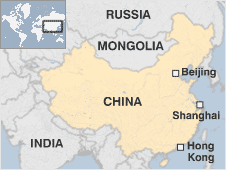
Many of the elements that make up the foundation of the modern world originated in China including paper gunpowder credit banking the compass and paper money.
After stagnating for more than two decades under the rigid authoritarianism of early communist rule under its late leader Chairman Mao China now has the world's fastest-growing economy and is undergoing what has been described as a second industrial revolution.
The People's Republic of China (PRC) was founded in 1949 after the Communist Party defeated the previously nationalist Kuomintang in a civil war. The Kuomintang retreated to Taiwan creating two rival Chinese states - the PRC on the mainland and the Republic of China based on Taiwan.
Beijing says the island of Taiwan is a part of Chinese territory that must be reunited with the mainland by force if necessary. The claim has in the past led to tension and threats of invasion but since 2008 the two governments have moved towards a more cooperative atmosphere.
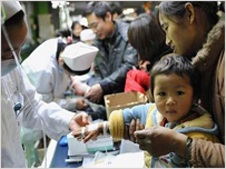
Chinese children get treatment for flu at a hospital in China.
|
The leadership of Mao Tse-Tung oversaw the often brutal implementation of a Communist vision of society. Millions died
in the Great Leap Forward - a programme of state control over agriculture and rapid industrialisation - and the Cultural Revolution a chaotic attempt to root out elements seen as
hostile to Communist rule.
However Mao's death in 1976 ushered in a new leadership and economic reform. In the early 1980s the government dismantled collective farming and again allowed private enterprise.
The rate of economic change hasn't been matched by political reform with the Communist Party - the world's biggest political party - retaining its monopoly on power and maintaining strict control over the people. The authorities still crack down on any signs of opposition and send outspoken dissidents to labour camps.
Economy
Nowadays China is one of the world's top exporters and is attracting record amounts of foreign investment. In turn it is investing billions of dollars abroad.
As a member of the World Trade Organization China benefits from access to foreign markets. In return it must expose itself to competition from abroad. But relations with trading partners have been strained over China's huge trade surplus and the piracy of goods; the former has led to demands for Beijing to raise the value of its currency which would make Chinese goods more expensive for foreign buyers and in theory hold back exports.
Some Chinese fear that the rise of private enterprise and the demise of state-run industries carries heavy social costs such as unemployment and instability.
Moreover the fast-growing economy has fuelled the demand for energy. China is the largest oil consumer after the US and the world's biggest producer and consumer of coal. It spends billions of dollars in pursuit of foreign energy supplies. There has been a massive investment in hydro-power including the $25bn Three Gorges Dam project.
Social discontent
The economic disparity between urban China and the rural hinterlands is among the largest in the world. In recent decades many impoverished rural dwellers have flocked to the country's eastern cities which have enjoyed a construction boom.
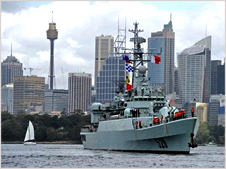
China's People's Liberation Army naval frigate "Mianyang" maneuvres toward the Garden Island naval base in Sydney Harbour on Sept
|
Social discontent manifests itself in protests by farmers and workers. Tens of thousands of people travel to Beijing each year to lodge petitions with the authorities in the hope of finding redress for alleged corruption land seizures and evictions.
The collapse in international export markets that accompanied the global financial crisis of 2009 has hit China hard. However concern of large-scale social unrest proved to be unfounded.
Other pressing problems include corruption which affects every level of society and the growing rate of HIV infection. A downside of the economic boom has been environmental degradation; China is home to many of the world's most-polluted cities.
Human rights
Human rights campaigners continue to criticise China for executing hundreds of people every year and for failing to stop torture. The country is keen to stamp down on what it sees as dissent among its ethnic minorities including Muslim Uighurs in the north-west. The authorities have targeted the Falun Gong spiritual movement which they designate an "evil cult".
Chinese rule over Tibet is controversial. Human rights groups accuse the authorities of the systematic destruction of Tibetan Buddhist culture and the persecution of monks loyal to the Dalai Lama the exiled spiritual leader who is campaigning for autonomy within China.
Head of state: President Hu Jintao
Little was known about the low-profile Mr Hu when he was elected by the National People's Congress in March 2003.
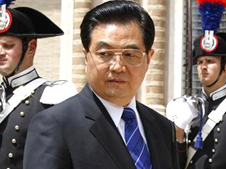
President Hu Jintao said to be cautious and loyal to the party
|
His position as the presidential heir-apparent had been cemented at the 16th Communist Party Congress in 2002 when he succeeded Jiang Zemin as head of the party. He was re-elected as president in March 2008.
Mr Jiang's decision to stand down as head of the powerful Central Military Commission in 2004 three years earlier than planned was said to have completed the first orderly transition of power since the communist revolution in 1949.
Mr Hu has made the fight against corruption a priority; he has promised to promote good governance saying the fate of socialism is at stake. But he has rejected Western-style political reforms warning that they would lead China down a "blind alley".
Responding to rising social tensions and China's wealth gap he advocates a drive to build a "harmonious society" and has promised greater spending on health and education in rural areas.
Hu Jintao was born in Anhui province in 1942 according to his official biography.
A committed Communist Party member since 1964 his party career took off in the late 1970s. In the 1980s he served as party chief in Guizhou and Tibet where he oversaw crackdowns on pro-independence protests. In 1992 Mr Hu became the youngest member of the Politburo Standing Committee the party's main decision-making body.
He is said to enjoy dancing and table tennis and has been described as a cautious intelligent man. Party loyalty and obedience are believed to have contributed to his political rise.
China's media are tightly controlled by the country's leadership. The opening-up of the industry has extended to distribution and advertising not to editorial content.
Beijing tries to limit access to foreign news providers by restricting rebroadcasting and the use of satellite receivers by jamming shortwave radio broadcasts including those of the BBC and by blocking web sites. Ordinary readers have no access to foreign newspapers.
However Beijing introduced new reporting rules for overseas journalists in October 2008. According to an official they followed the "principles and spirit" of regulations introduced for the Beijing Olympics which allowed greater freedom for foreign reporters to travel and to interview.
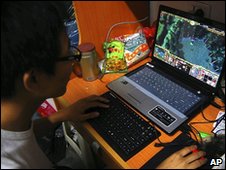 China online: Surveillance censorship are extensive
253m internet users by June 2008 (official figure)
Reporters Without Borders lists China as one of 13 "enemies of the Internet"
|
Fears that the media in Hong Kong would lose their independence when the territory reverted to Chinese control in 1997 have generally not been borne out. Hong Kong still has editorially-dynamic media but worries about interference remain.
The press reports on corruption and inefficiency among officials but the media as a whole avoid criticism of the Communist Party's monopoly on power. Each city has its own newspaper usually published by the local government as well as a local Communist Party daily.
With more than one billion viewers television is a popular source for news and the sector is competitive especially in urban areas. China is also becoming a major market for pay-TV; it is forecast to have 128 million subscribers by 2019. State-run Chinese Central TV provincial and municipal stations offer a total of around 2100 channels.
The availability of non-domestic TV is limited. Agreements are in place which allow selected channels - including stations run by AOL Time Warner News Corp and the Hong Kong-based Phoenix TV - to transmit via cable in Guangdong province. In exchange Chinese Central TV's English-language network is made available to satellite TV viewers in the US and UK.
Beijing says it will only allow relays of foreign broadcasts which do not threaten "national security" or "political stability". Of late it has been reining in the activities and investments of foreign media groups. The media regulator - the State Administration for Radio Film and Television - has warned local stations that foreign-made TV programmes must be approved before broadcast.
China has the world's largest net-using population but the web scene is under tight control. Beijing routinely blocks access to sites run by the banned spiritual movement Falun Gong rights groups and some foreign news organisations. It has moved to curb postings by a growing number of bloggers.
An international group of academics concluded in 2005 that China has "the most extensive and effective legal and technological systems for internet censorship and surveillance in the world".
The media rights group Reporters Without Borders describes the country as the world's "largest prison for journalists".
The press
Television
Radio
News agency
Xinhua (New China News Agency) - state-run

AFRICA | ASIA-PACIFIC | AMERICAS | EUROPE | MIDDLEEAST | SOUTHASIA
![]()
![]()
![]()
Mauritania Mauritius Morocco Mozambique Namibia Niger Nigeria Republic-of-congo Rwanda Sao-tome-and-principe Senegal Seychelles Sierra-leone Somalia South-africa Sudan Swaziland Tanzania The-gambia Togo Tunisia Uganda Australia Brunei Burma Cambodia China East-timor Fiji Indonesia Japan Kazakhstan Kiribati Kyrgyzstan Laos Malaysia Marshall-islands Micronesia Mongolia Nauru New-zealand North-korea Palau Papua-new-guinea Samoa Singapore Solomon-islands South-korea Taiwan Tajikistan Thailand The-philippines Tonga Turkmenistan Tuvalu Uzbekistan Vanuatu Vietnam Antigua-and-barbuda Belize Bolivia Brazil Canada Chile Colombia Costa-rica Cuba Dominica Dominican-republic Ecuador El-salvador Grenada Guatemala Guyana Haiti Honduras Jamaica Mexico Nicaragua St-kitts-and-nevis St-lucia Suriname Trinidad-and-tobago Uruguay Venezuela Albania Andorra Armenia Austria Azerbaijan Belarus Belgium Bosnia-hercegovina Bulgaria Croatia Cyprus Czech-republic Denmark Estonia Finland France Georgia Germany Greece Hungary Iceland Ireland Italy Latvia Liechtenstein Lithuania Luxembourg Macedonia Malta Moldova Monaco Montenegro Norway Poland Portugal Russia San-marino Serbia Slovakia Slovenia Spain Sweden Algeria Egypt Iran Iraq Israel-and-palestinian-territories Jordan Kuwait Lebanon Libya Mauritania Oman Saudi-arabia Sudan Syria Tunisia United-arab-emirates Yemen Afghanistan Bangladesh Bhutan India Nepal Pakistan Sri-Lanka The-Maldive